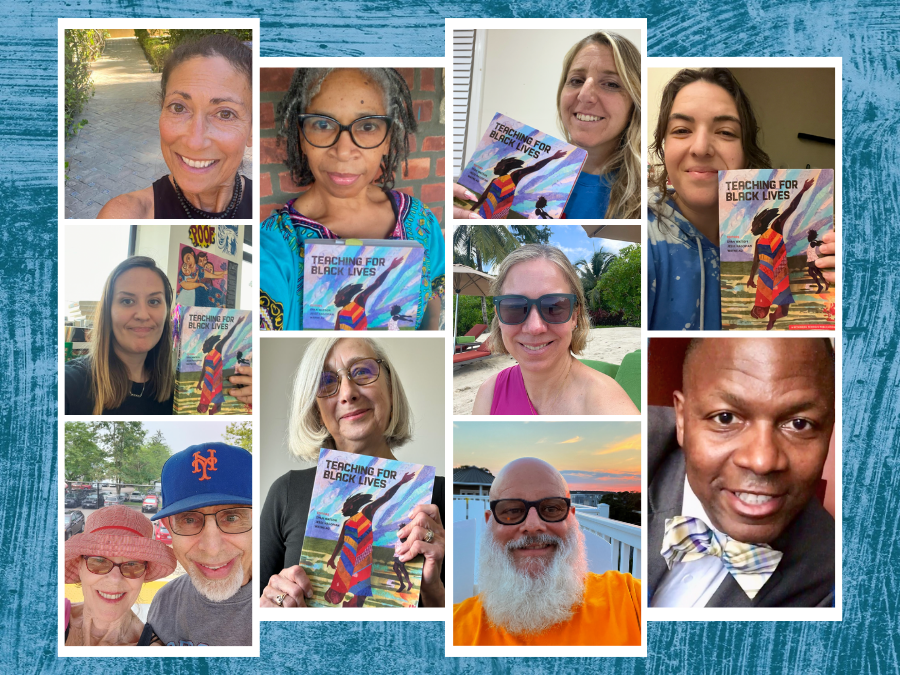
New York City T4BL Study Group
A study group of 11 educators, administrators, parents, staff developers, and graduate students — all members of the Anti-Racist Alliance of Educators in New York City — formed a Teaching for Black Lives study group in 2022 and met monthly. Study group co-coordinator and special education teacher, Ina Pannell-Saint Surin, said:
As educators we see, day-to-day, how the narratives of BIPOC people are consistently left out of education. We know the importance of continually grounding ourselves in reading and discussing different books/articles/practices and how this deepens our knowledge, informs our teaching practices, enriches our conversations, and sustains us to continue organizing.
In the beginning, we followed the readings that were recommended in the facilitation guide, and then by winter, we self-selected readings that supported our decision to write a policy report to the New York State Department of Education — addressing the failed policies and practices of our education system and the impact on youth, families, educators, and community partners.
We identified groups of people whose voices we wanted to include and we divided the work — who would do the writing for parent voices, educator voices, and community partners. Several members wanted to hear what students had to say about their education and whether or not they are feeling like they’re getting an accountable education.
As we continued to meet, we came up with certain questions that we thought would be appropriate to ask the students — about how they feel their voice lands in educational spaces. We felt it was really important not to leave out the students, especially since we were reading so much about the importance of having that student voice.
Haley Siegel, math teacher and study group co-coordinator, noted:
I think by nature, when in groups such as these, we as educators naturally bring practices into our classroom and community. As members of this community have discussed, it needs to be larger than our classrooms, aka policy. Comments from our previous meeting lead me to believe that policy around family engagement is of interest.
In December, the study group selected “A Vision for Black Lives” from Section 1: Making Black Lives Matter in Our Schools, and “Vacancies to Fill” from Section 3: Gentrification, Displacement, and Anti-Blackness, and paired it with a few questions from the discussion guide:
- What are some of the most important policy demands for education issued by the Movement for Black Lives? Why do you think these are important?
- How can you use lessons in the book on gentrification, displacement, and anti-Blackness as a framework to examine your local community through both a historical and contemporary lens?
One member shared, “I’ve learned more about policy writing and larger scale actions that do not take place within the walls of my classroom. I have more of a macro view of what is halting equity work in schools.”
Pannell-Saint Surin concluded:
The next step this second year is to start to compile and synthesize what we’re hearing from folks and move forward with interviewing educators and parents — asking their perspective about the shortcomings in the education system and how it isn’t serving students.
We’ll read more this year and encourage members to attend more Teach the Black Freedom Struggle online classes and additional curriculum workshops offered. They were all so very inspirational because we had a lot of expertise coming in and talking to us about the system that we’re analyzing in our report. It’s a bigger task than I thought it would be, and I’m really glad that we have another year to do this.
The group hopes to complete and share their report by spring of 2024.

